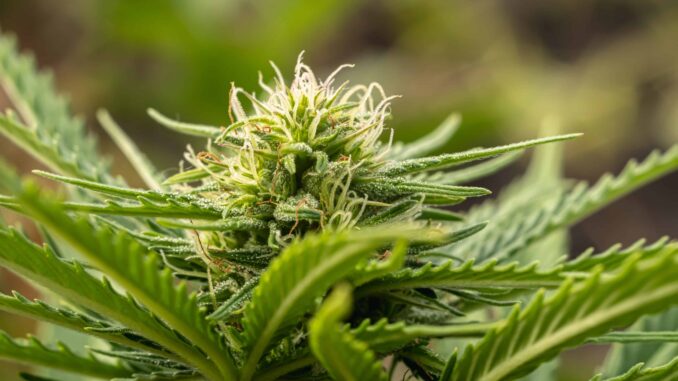
[ad_1]
A series of amendments to state law prohibit employers from discriminating against job applicants based on past or off-the-clock pot use, and the list of jobs now includes police officers.
Per a bill signed by Gov. Gavin Newsom last October, law enforcement officials in California are updating employment policies for police officers—specifically, removing questions for police job applications about past cannabis use.
Dec. 7, the Commission on Peace Officer Standards and Training issued a bulletin announcing changes in the way aspiring police officers are asked about prior pot use. The bulletin arrives 30 days after a new California law went into effect, which affects law enforcement jobs and many other types of jobs against discrimination surrounding off-the-clock pot use.
Newsom signed Senate Bill 700, spearheaded by Senator Steven Bradford (D-Gardena), along with dozens of other bills Oct. 7. SB 700 amends Government Code section 12954, which “prohibits discrimination against a person in hiring, termination, or term or condition of employment, or otherwise penalizing the person for their use of cannabis off the job and away from their workplace.”
“To meet the provisions of GC § 12954, the POST Personal History Statement—Peace Officer and Personal History Statement—Public Safety Dispatcher forms have been modified to remove inquiries about a candidate’s prior cannabis use,” the bulletin reads.
Specifically, questions 80-83 and questions 79-82 have been modified. General inquiries about an applicant’s prior criminal history will remain unchanged. The revised forms are available on the POST Website. Other provisions of GC § 12954, which was initially added to the Government Code by Assembly Bill 2188 (2022), pertain to drug screening tests. The Commission on Peace Officer Standards and Training does not require drug testing nor provide guidance in establishing drug use policies. Hiring agencies will need to determine how to adjust their drug testing and/or policies to meet this new law.
“This law becomes effective January 1, 2024.”
Employees of most types of jobs in California already are protected for off-duty pot use.
In Sept. 2022, Newsom signed Assembly Bill 2188, a bill from Assemblymember Bill Quirk (D) that makes it unlawful for employers of all kinds to discriminate against a person in hiring, termination, or any term or condition of employment for off-duty cannabis use.
“Existing law, on and after January 1, 2024, makes it unlawful for an employer to discriminate against a person in hiring, termination, or any term or condition of employment, or otherwise penalize a person because of the person’s use of cannabis off the job and away from the workplace, except as specified.”
The series of amendments make it harder for employers to punish employees and future employees from past pot use.
Other States Take Similar Actions
Some adult-use states have chosen to allow past pot use for aspiring police officers while others have not.
Nevada officials recently amended hiring standards for police officers to allow applicants to be eligible to apply, who would have been disqualified for certain cannabis-related offenses. Nevada’s Commission on Peace Officer Standards and Training (POST) voted to amend rules that prevented applicants from becoming a peace officer if they have been convicted of a drug-related offense.
Other states didn’t exactly follow the same pattern. A lawsuit filed last month aims to block officers on police forces in New Jersey from consuming cannabis, even off the clock.
The New Jersey Monitor reports that Jersey City Public Safety Director James Shea, filed an 18-page complaint on Oct. 16, arguing that because federal law prohibits anyone who uses a controlled substance including cannabis from possessing a firearm, Jersey City cannot employ police officers who consume adult-use cannabis. Shea was joined in his announcement with Mayor Steven Fulop and Jersey City Police Department officials.
The State of New Jersey, Matthew Platkin as Attorney General of the state of New Jersey, The New Jersey Civil Service Commission, Norhan Mansour, Omar Polanco, Mackenzie Reilly, Montavious Patten, and Richie Lopez are listed as the plaintiffs.
“Police officers in New Jersey are required to possess and receive firearms in order to fulfill their duties as law enforcement officers. New Jersey legalized the regulated use of recreational marijuana/cannabis in New Jersey through passage of the Cannabis Regulatory, Enforcement Assistance, and Marketplace Modernization Act (CREAMM Act),” the lawsuit reads. “In doing so, New Jersey failed to address the impact of the federal firearm laws on the use of regulated marijuana/cannabis in New Jersey for persons who are required to possess and/or receive firearms or ammunitions as part of the job duties, including police officers in Jersey City.”
California and other states are choosing to allow prospective police officers who used to smoke pot in the past.
[ad_2]
Source link

Soyez le premier à commenter